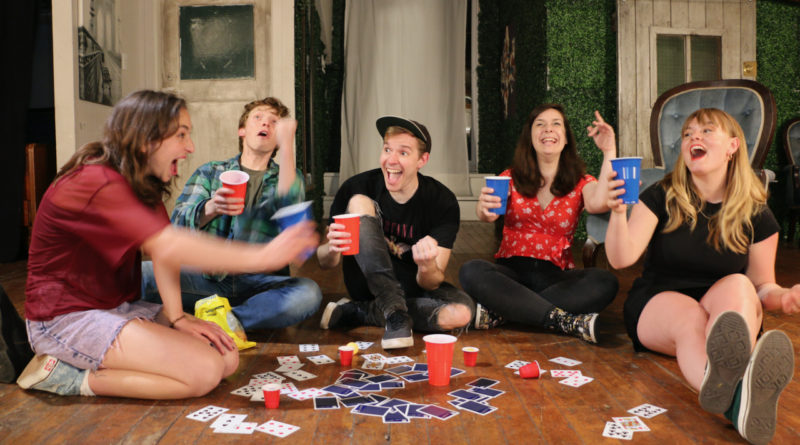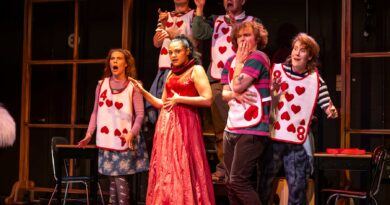Will King’s new comedy “Dead Broke” explores the high cost of living for nothing
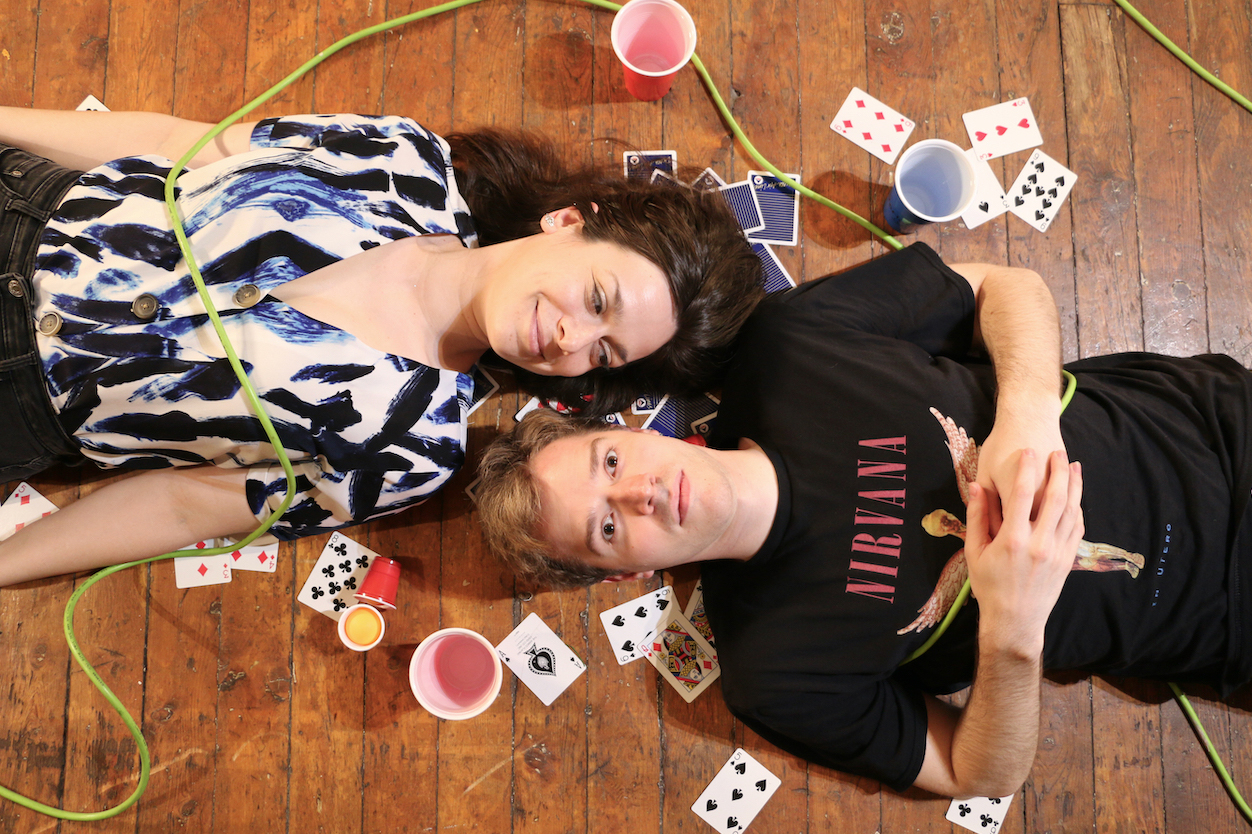
What is the cost of living for nothing?
This is the central question explored in the play Dead Broke by actor, writer and director Will King, who first developed Dead Broke in 2020 with the Beats + Intentions Playwrights Unit, run by Expect Theatre and the PGC. The Lost Dreams Collective will premiere the new play as part of the Toronto Fringe Festival at the Tarragon Extraspace July 6-17, performed by an ensemble of rising-star Canadian talent from theatre, film, and television.
The story follows Oliver (King), a university student, who is in trouble. After switching his major and losing all financial support, he begins squatting in an abandoned home to reduce costs and save his relationship with his girlfriend, Charlotte (Courtney Keir). To convince their friends that his new living situation is viable, they arrange a birthday party for Oliver’s best friend, Johnny (Gordon Harper), at his new, run down place. Joined by Laura (Elle Reimer), a plucky law school student, and Irina (Claire Shenstone-Harris), a runner crashing with Johnny, everything appears to be falling into place. But when they discover that the house has a sinister past – and someone goes missing – Oliver’s life and reality spiral desperately out of control. Dead Broke is a surreal thriller and dark ensemble comedy that prompts audiences to question what to do at a point of identity crisis.
Ahead of the opening of Dead Broke, SesayArts Magazine spoke with King about the real-life location and circumstance that inspired this timely play, the provocative questions that the play explores through humour and horror (yes, horror!), and why it invites repeated viewing, ideally during its late-night shows.
SM: Where did the idea for Dead Broke come from? Is it any part of it based on something real or personal?
WK: I think the world of the play is kind of personal to me. I went to university in Windsor, Ontario, and in my second year, I lived right by the Ambassador Bridge which leads to Detroit, and there were all these abandoned houses. There was one next door to me (which is apparently still abandoned. I found it on Google Maps!), and I used to think in some sort of way it would be easier to live there than to keep renting these beat up student homes. So the atmosphere of that location just stuck in my head.
And as I’ve been getting a bit older, I had this idea that I wanted to write a love letter to my youth. For people growing, and mostly stumbling, and discovering themselves at that age. So the two parts kind of clicked together.
The characters don’t really mirror anyone specific in my personal life, but I guess the environment really does, and I think they’re all grounded in a reality I understand. Which helps us hold on to something when the story starts shifting…
SM: Since many of the play’s characters are university students, is the play commenting on university education, who can access it, and the role it plays in shaping someone’s identity and success?
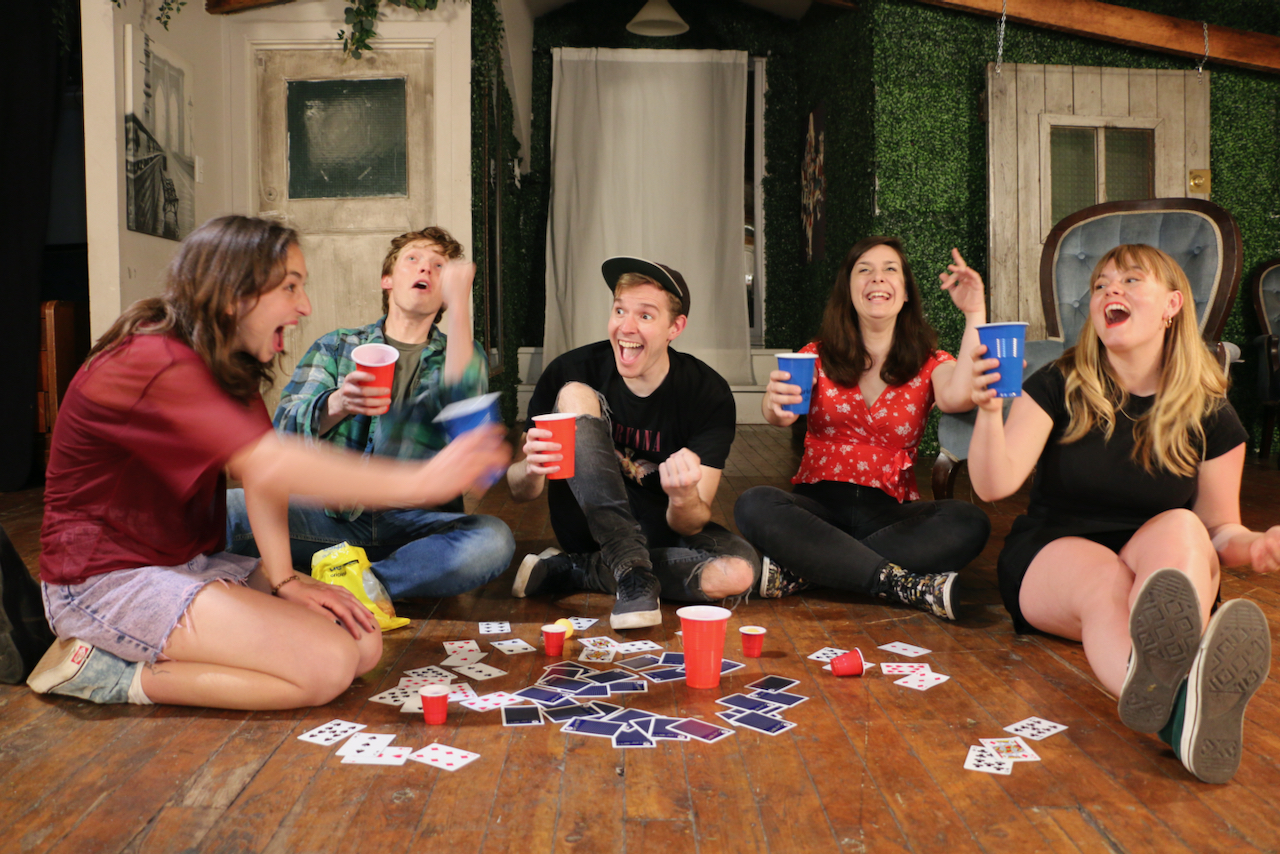
WK: Yeah. I try not to be too heavy-handed with that, but the dynamic between Oliver and Charlotte really highlights that struggle. He’s lost all his financial support by trying to be himself, without really knowing who he is, and she’s encouraging him to keep going, without really understanding the severity of what could change for him. And there’s some built-in conflict there that sparks the play.
Some characters work within the university system, and some, like the drug dealer Johnny, have found other ways to support their education. I think our university system is still pretty broken. I think it should be a right, rather than a privilege to learn; but whether I like it or not, if you cut too many corners to stay afloat, you fall through the cracks, and I think this play serves as a bit of a cautionary tale for that.
SM: Given the rampant inflation and skyrocketing housing costs we are currently experiencing, would you say that your play is particularly timely?
WK: It definitely hits the zeitgeist of affordable housing a bit harder after the past few years. I think many of us, especially artists, have wondered what would happen if we bottomed out. This play kind of builds out of that existential dread.
SM: What will audiences experience at Dead Broke, and what do you hope the play will prompt them to think about after they’ve seen it?
WK: The big question that I’ve anchored the conflict in is, “what’s the cost of living for nothing?” What do you lose, trying to take money out of the picture? Is that even possible? And what do you strive for if you don’t know what you want?
But I hope the main takeaway is that it’s fun! It’s a dark comedy. You might laugh when you least expect it, and it’s a bit of a mind-bender, so I’m actually really excited for the post-show debates and discoveries. I’ve got a core lore that I’ve built the spine of the story around, but I think for the surreal (dare I say, Horror!) elements to really work, you can’t quite give everything away. You’ve got to trust the audience to put the puzzle pieces together. I’ve got answers, but I’ve left some threads up for you to decide. I know that there’s a lot to see at the festival, but I actually think it would hold up really well for repeat viewings. So feel free to see it more than once!
SM: What would you like us to know about the cast and how you came together to form The Lost Dreams Collective?
WK: This collective is something I made to really put an emphasis on new writing. For myself, and hopefully others that I can help build up too. I’m planning to keep that going after the festival with a writing group. I was really fortunate to develop this play back in 2020 with the Beats + Intentions Playwrights Unit, run by Expect Theatre and the PGC. Having a group specifically focused on writing to regularly bounce ideas off was really eye opening to me, and I’d love to build a community of like-minded writers dedicated to making strong new Canadian plays.
This team has been extraordinary. It’s been so fun, and honestly, super cathartic, to be able to work with such a competent and compassionate group after the past few years. Calvin, our director, has done a great job harnessing the humour and relatability of these characters. It’s the first time we’ve worked together, but I really feel that it was also so critical to have an objective outside eye, because I’m inside the thing I wrote. And at a certain point, when I’m inside the rehearsal room, I have to turn that part of my brain off and place my faith in someone else. And Calvin has been a wonderful steward of this story.
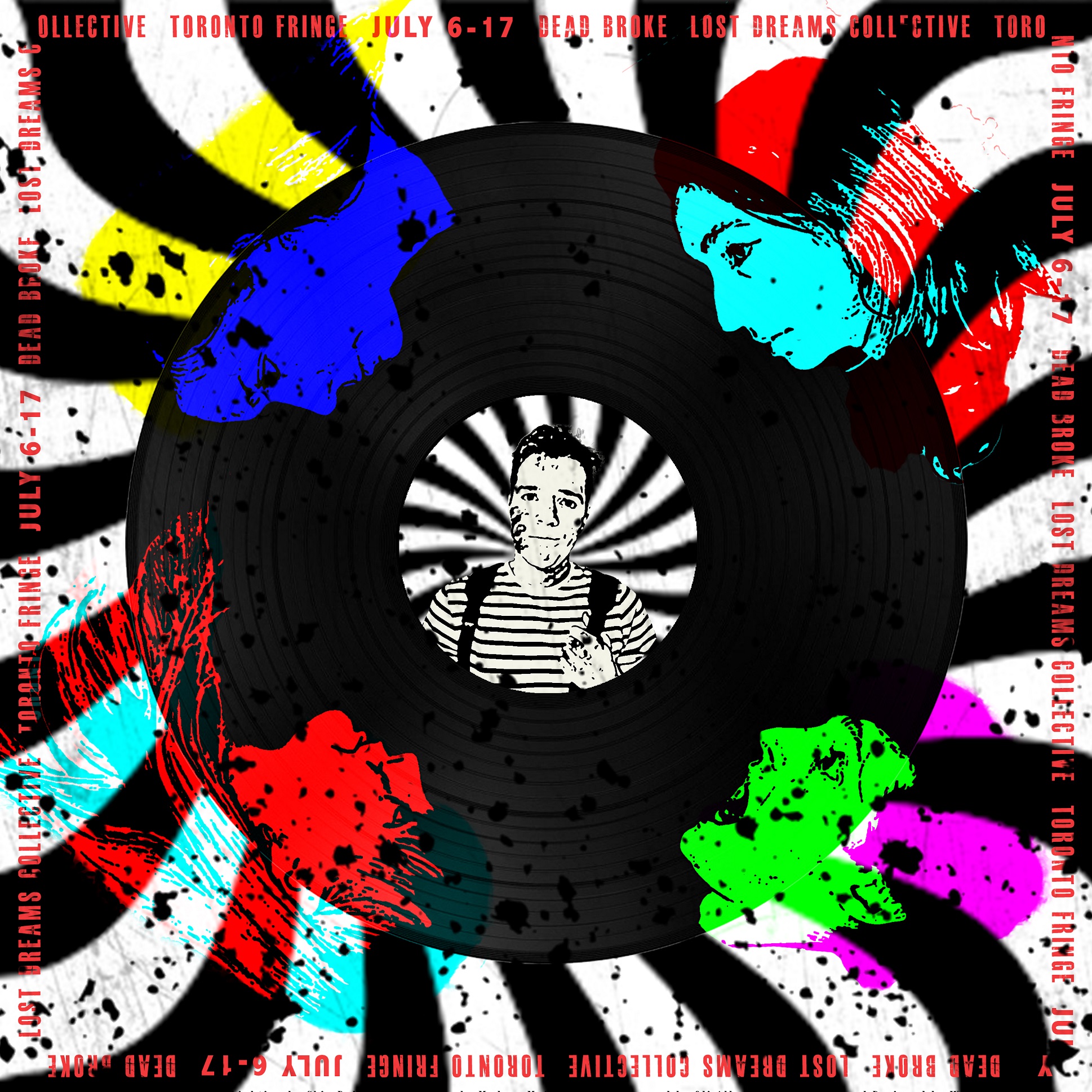
Featuring (in a circle): Claire Shenstone-Harris, Gordon Harper, Will King, Elle Reimer, Courtney Keir.
The cast is firing on all cylinders. I don’t think I’ve made things easy for them! Without spoiling anything… there’s some big turns and layers to what they’re doing, and they’ve really risen to the challenge. I’ve worked with a few of them before. I directed Courtney in a play called Fever/Dream back in 2015, so it’s been really nice to be able to act together all these years later. Claire was in a show I helped produce for the Future Theatre Festival called Tactile Maladies, but it’s been wonderful to see more of her process. And this is the first show I’ve done with Gordon and Elle, but they both bring a tenacity and dedication to their work that’s infectious to be around.
I would be remiss if I didn’t also mention Julia (our set/costume designer) and Chin (our lighting designer) who have really made the world of the play pop. Nate (our fight director) is my favourite fight choreographer in the city, and is always blast to be around. Thanks to Oli for keeping us on track, and shout out to Madryn for drumming up interest for another crazy idea of mine.
It’s been so much fun sound designing, and collaborating with this team. I’ve been trying to soak it up a day at a time, and just be grateful for the experience to make art I’m proud of again.
SM: The final word is yours. What would you like to add that I haven’t asked?
WK: Come to our late-night shows!!! I mean, come to any show you like (we also have a relaxed performance I’m very excited to offer), but I’m really pumped for the two late shows, because they’ll bring a kind of “midnight madness” element to the room. And this show thrives in that place. It twists and turns, and it’s well suited to take in before you disappear into the night.
Reserve tickets to Dead Broke here.
© Arpita Ghosal, SesayArts Magazine 2022
About The Author
Arpita Ghosal
Arpita Ghosal is a Toronto-based arts writer. She founded Sesaya in 2004 and SesayArts Magazine in 2012.
Visit About Us > Meet the Team to read Arpita’s full bio …

